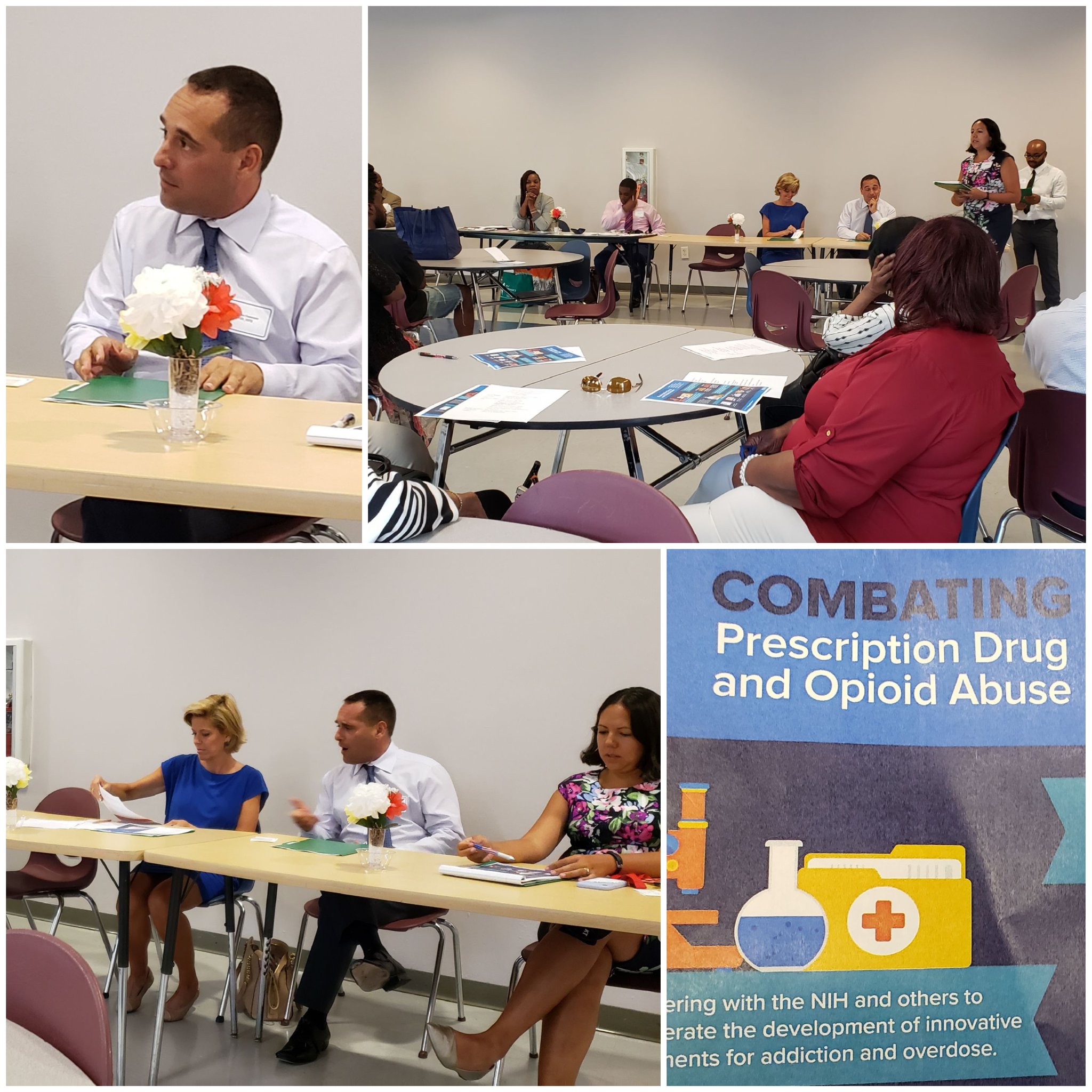Opioid Policies

Much like the rest of the United States, residents of the District of Columbia are struggling with substance use disorder (SUD) rate increases and high rates of opioid-related deaths. Unfortunately, these are multi-faceted issues that require year-long initiatives and systematic programs to address the myriad causes of addiction.
MSDC stands as a partner to the District government and private entities to help arrest the rates of opioid and substance abuse in the District. Through our advocacy for better prescribing practices, education on addiction, and even helping our own community through our Physician Health Program, MSDC is working to make DC a leader in reducing SUD, OUD, and addiction.
On a related note, MSDC is passionate about helping patients make prescriptions and medication more affordable. Whether expanding access to biosimilars or advocating for more affordable co-pays, MSDC wants to help our patients afford the medications they need.
MSDC Statement and Testimony on Opioid and Prescription Issues
25th Council information coming soon
MSDC, AMA Issue Joint Statement Supporting Prior Auth Reform Bill
For Immediate Release
April 5, 2022
Physicians Advocate for Removal of Health Insurance Barriers to Care in District of Columbia
Survey finds prior authorization requirements delay care and harm patients
WASHINGTON – The American Medical Association (AMA) joined the Medical Society of the District of Columbia (MSDC) in supporting a bill to reform the health insurer-imposed approval processes for medical procedures, treatments, and drugs. In a letter delivered today to the Council of the District of Columbia’s Committee on Health, the two physician organizations urged immediate action on the Prior Authorization Reform Act of 2022 as a critically needed measure to rein in bureaucratic insurance requirements that delay and disrupt patient access to necessary medical care in the District of Columbia.
Survey data released in February by the AMA show that more than nine in 10 physicians (93%) reported care delays while waiting for health insurers to authorize necessary care, and more than four in five physicians (82%) said patients abandon treatment due to authorization struggles with health insurers.
Despite a 2018 commitment from the health insurance industry to streamline prior authorization processes for patients, physicians report that the burden is dramatically increasing, causing a variety of problems for their patients and their practices. In fact, more than one-third (34%) of physicians reported that prior authorization led to a serious adverse event, such as hospitalization, disability, or even death, for a patient in their care.
To help ensure that District patients get the care they need in a timely manner, the Prior Authorization Reform Act of 2022 was introduced by Councilmembers Mary Cheh, Charles Allen, Anita Bonds, Janeese Lewis George, and Vincent Gray. The reform bill would realign what has become a very broken system by introducing new transparency and clinical validity requirements to ensure patients have access to care.
“Prior authorization is one of the biggest impediments to patient care, and this legislation would allow physicians to treat their patients without unnecessary paperwork and delays,” said MSDC President Kirstiaan Nevin, M.D.
“Providing quality care to patients is the top priority of physicians, but waiting for a health plan authorization can delay and disrupt patient-centric care with a lengthy administrative nightmare of recurring paperwork, multiple phone calls and bureaucratic battles,” said AMA President Gerald Harmon, M.D. “Almost four years after agreeing with physicians on needed improvements, the health insurance industry has made little progress toward those goals. Failure of health insurers to achieve agreed-upon improvements illustrates a clear opportunity for District councilmembers to rein-in prior authorization requirements that adversely impact patient health.”
In the face of inaction by health insurance companies, it is time for District councilmembers to streamline prior authorization requirements so patients can receive the treatment they need, when they need it. For more information visit: www.fixpriorauth.org.
# # #
Media Contacts:
Robert J. Mills
American Medical Association
Email: robert.mills@ama-assn.org
Pia Duryea
Medical Society of the District of Columbia
Email: duryea@msdc.org
Sample of Legislation MSDC Tracked on Opioid and Prescription Policy
What does it do? The bill authorizes licensed pahrmacists to dispense interchangeable biological products and requires notifications to physicians when such interchangeables are dispensed.
MSDC position: MSDC has a position of priority support on this legislation, identifying its passage as one of its highest legislative priorities.
Current status: SUCCESS. The bill was passed by the Council and signed by the Mayor.
What does it do? The bill requires prescription opioid medications to include a statement that the drug is an opioid and opioids may cause dependence, addiction, or overdoes.
MSDC position: MSDC supports the legislation.
Current status: The bill had a hearing before the Committee on Health on July 29, 2020. MSDC leader Dr. Sam Kareff testified for the Medical Society. It passed the Council on November 10 and was signed by the Mayor December 7.
What does it do? The bill prohibits insurance companies from factoring the use of PreP in decisions related to disability, life, or long-term care policies.
MSDC position: MSDC supports this legislation
Current status: The bill was introduced on January 8, 2019 and assigned to the Committee on Business and Economic Development.

Leave a comment